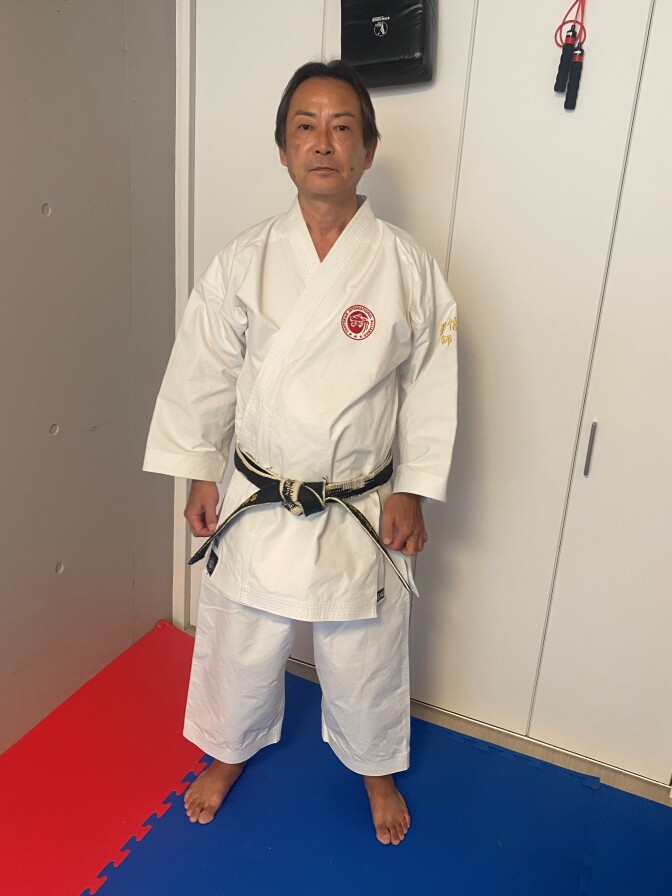TOKYO — The ancient martial art of Karate made its debut at the Summer Olympics in Japan this week. The sport was added as a nod to the country where it developed 700 years ago.
There are two types of karate at these Olympics: kata, and kumite.
Kata is performed solo, with an imaginary rival. The hand and leg movements are slow and precise. But Kumite is sparring; kicking and punching at an opponent.
The martial art developed seven centuries ago, on the island of Okinawa At the time, Okinawa was controlled by a clan that outlawed weapons, says Kenshin Iwata. He runs a dojo — a karate academy — in a section of Tokyo known for ancient samurai warriors.
"Without weapons, they wanted to know how to fight against those bad samurai who tried to fight with the swords and other weapons," Iwata says, explaining the origin of karate. "In fact, karate is literally meaning empty hands. No weapons, just hands."

Iwata runs the International Karate Do Kenshin Kai. He says different forms of karate developed, including one that started with Okinawans using farm tools to fight. Later, they developed sticks and nunchucks.
Iwata says in karate, the body is a weapon. "It's what we call the art of killing with one blow," he says.
He says karate masters have been very secretive about their styles. But one of his instructors moved to California and introduced karate to Hollywood; in fact, he was a stunt double in the 1984 movie Karate Kid.
"Hollywood movies are not actually karate, it's more like a stunt," says Iwata. He says his sensei, his teacher, arranged the karate techniques "to show more exaggerated expressions," to get moviegoers excited. "It's entertainment."
Karate Kid and the recent Netflix series Cobra Kaihavehelped make karate more popular around the world. But Iwata says thereal martial art of karate is about spirit training and discipline.

"You're not supposed to show off how strong you are. It's more like much more like quiet and static rather than dynamic," he says. "Real martial arts is more like mentally cool, and how you can control yourself, whatever the situation is."
He says in karate, if someone challenges or threatens you, "you change your character and now you ready to fight. You can actually use techniques to protect yourself."
On a mat in his small home dojo in Tokyo that doubles as his home office, Iwata demonstrates his techniques. Wearing his white karategi, his uniform tied with one of the six black belts he earned, he bows. Then he goes through a series of fast-speed kicks and blows that come half an inch from me.
The karate at the Olympics, he says, is more of a sports technique. He's encouraging his students to watch the Games on TV as motivation.

Iwata notes that Europeans are now dominating in world competitions. It was actually karate champs from France, Spain, and Bulgaria who claimed the first- ever Olympic gold medals this week.
On the second day of competition, 31-year-old Ryo Kiyuna of Japan also earned a gold medal after performing a kata known as "Ohan Dai." He said he was proud to make history as the first athlete from Okinawa to win gold.
"This tradition of Okinawa has spread around the world and is loved by so many people," he said after his win. "We were able to show what karate is to the world through the Olympics, so in that sense, all of the athletes made history together."
Karate will not be at the Paris Olympics in 2024. But some enthusiasts hope to see it back at the Games in Los Angeles in 2028.
Copyright 2021 NPR. To see more, visit https://www.npr.org. 9(MDA1OTI3MjQ5MDEyODUwMTE2MzM1YzNmZA004))









